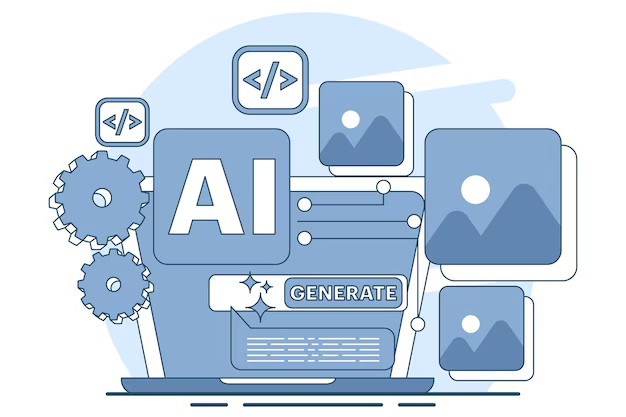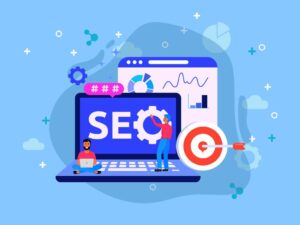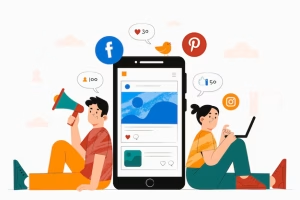Introduction
Artificial intelligence (AI) is transforming AI in addiction recovery by enabling personalized outreach and data-driven strategies for marketing addiction recovery services. However, using AI for addiction recovery raises significant ethical challenges, including patient privacy, algorithmic bias, and maintaining trust in a highly sensitive field [2]. This blog post examines the ethical considerations of leveraging AI for addiction recovery marketing, focusing on protecting vulnerable populations and ensuring responsible implementation to support recovery journeys.
Ethical Considerations and Challenges
Patient Privacy and Data Security
AI for addiction recovery relies on sensitive data, such as substance use histories and treatment records, making privacy and data security paramount [2]. AI systems process personal health information (PHI), increasing risks of breaches or misuse, particularly for individuals in recovery who face stigma [1]. Compliance with the Health Insurance Portability and Accountability Act (HIPAA) is critical, yet complex AI models can challenge adherence, especially with third-party platforms. For example, data sharing for targeted ads risks re-identification, even with anonymization [2]. Marketers must use HIPAA-compliant AI tools with robust encryption to protect patient confidentiality.
Algorithmic Bias and Equity
AI algorithms can perpetuate biases, potentially excluding underserved groups from addiction recovery services [2]. If training data underrepresents certain demographics, such as low-income or minority populations, AI for addiction recovery may fail to reach those most in need, worsening disparities [1]. For instance, predictive analytics might prioritize patients with access to digital platforms, overlooking others [4]. Mitigating bias requires diverse datasets, inclusive development teams, and regular audits to ensure equitable marketing outreach [2]. This aligns with ethical goals to reduce inequities in addiction care [1].
Transparency and Trust
In addiction recovery, trust is essential, yet AI’s opaque algorithms can undermine confidence if patients or providers don’t understand marketing processes [2]. Transparent communication about how AI for addiction recovery uses data—such as targeting ads based on search behavior—is critical to maintain empathy and accountability [1]. Patients must be informed about data usage and consent clearly, especially given the stigma surrounding addiction [5]. Transparent AI practices foster trust, ensuring marketing aligns with patient-centered recovery principles [2].
Strategies to Address Challenges
To ethically implement AI for addiction recovery, marketers should:
- Use HIPAA-Compliant AI Platforms: Partner with vendors prioritizing data security, employing encryption and secure storage to protect PHI.
- Mitigate Bias: Incorporate diverse datasets and engage community stakeholders to ensure equitable outreach, with audits to address algorithmic biases [2].
- Promote Transparency: Clearly disclose AI’s role in marketing campaigns and provide patients with control over their data to build trust [5].
- Collaborate with Experts: Involve addiction specialists, ethicists, and recovered individuals in AI development to align tools with ethical recovery goals [3].
How Clear Path Treatment Solutions Can Help
Clear Path Treatment Solutions is uniquely positioned to address the ethical challenges of AI in addiction recovery marketing by combining cutting-edge technology with a commitment to patient welfare. Our in-house specialized call center pre-assesses and verifies insurance for high-intent leads, ensuring personalized, empathetic engagement that respects patient privacy. By leveraging AI-driven predictive analytics, Clear Path optimizes targeted PPC campaigns on platforms like Google and Facebook, reaching individuals actively seeking recovery services while minimizing bias through diverse data inputs. Our transparent approach, with real-time performance tracking via Salesforce and call metrics, ensures clients and patients are informed about data usage, fostering trust. Additionally, Clear Path’s HIPAA-compliant processes safeguard sensitive PHI, aligning with ethical standards for addiction recovery marketing [5]. By handling the full call funnel and travel arrangements, Clear Path streamlines patient acquisition, allowing treatment centers to focus on delivering compassionate care. For treatment centers seeking ethical, effective AI-driven marketing, Clear Path offers a proven solution to connect with those in need responsibly.
FAQs
How does Clear Path Treatment Solutions ensure ethical use of AI in addiction recovery marketing?
Clear Path uses HIPAA-compliant platforms, secure data handling, and diverse datasets to minimize bias, while providing real-time transparency through Salesforce and call tracking metrics to build trust.
What role does AI play in Clear Path’s marketing strategy for addiction recovery?
Clear Path leverages AI in addiction recovery to power targeted PPC campaigns, analyze patient data for personalized outreach, and optimize lead generation, ensuring efficient and ethical patient acquisition.
How does Clear Path protect patient privacy when using AI?
Clear Path employs HIPAA-compliant tools, robust encryption, and secure data storage to safeguard personal health information (PHI), preventing unauthorized access or breaches.
Can AI in addiction recovery marketing address underserved populations?
Yes, Clear Path mitigates algorithmic bias by using diverse datasets and regular performance audits, ensuring equitable outreach to underserved groups seeking recovery services.
How can treatment centers benefit from partnering with Clear Path?
Treatment centers gain access to Clear Path’s AI-driven, transparent marketing solutions, including high-intent lead generation, insurance verification, and travel arrangements, allowing them to focus on patient care.
Conclusion
AI for addiction recovery offers powerful tools for personalized marketing but demands careful navigation of ethical challenges like privacy, bias, and trust. By prioritizing data security, equity, and transparency, marketers can responsibly use AI to reach and support individuals in recovery [5]. Clear Path is committed to ethical AI integration, delivering compassionate, patient-centric marketing that empowers those seeking addiction recovery services.
Sources
[1] Artificial Intelligence in Healthcare: Transforming the Practice of Medicine – https://pmc.ncbi.nlm.nih.gov/articles/PMC8285156/
[2] Harnessing the Power of Artificial Intelligence: A Review of Its Impact on Clinical Practices and Healthcare Management – https://pmc.ncbi.nlm.nih.gov/articles/PMC10744168/
[3] The Role of Artificial Intelligence in Hospitals and Clinics: A Review of Its Applications and Implications – https://pmc.ncbi.nlm.nih.gov/articles/PMC11047988/
[4] A Review of the Role of Artificial Intelligence in Healthcare – https://pmc.ncbi.nlm.nih.gov/articles/PMC10301994/
[5] The Future of Telemedicine and Artificial Intelligence Integration in Clinical Practice – https://pmc.ncbi.nlm.nih.gov/articles/PMC8349367/





